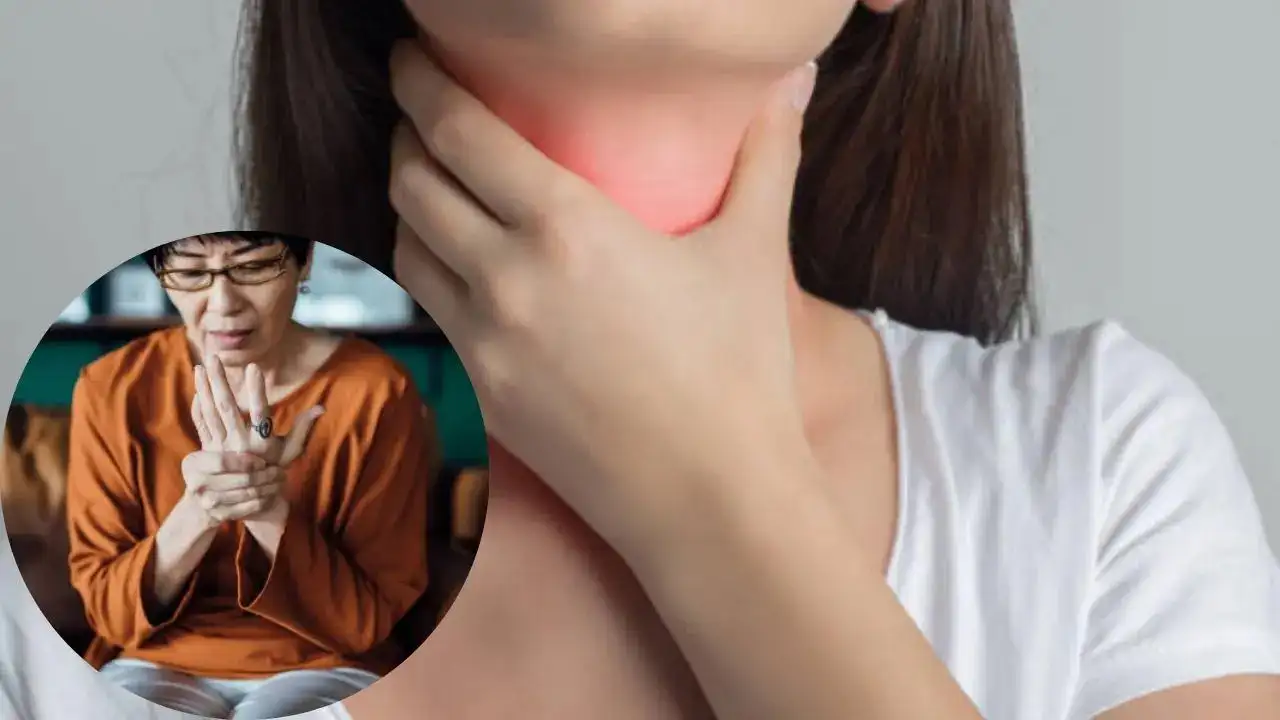
Thyroid dysfunction for many women undermines their bone and joint health, increasing the risk of osteoporosis.
Women across the world are more prone to thyroid-related disorders, particularly hypoth which leads to extreme fatigue, weight gain, and severe mood swings. However, it just does not end at that. Doctors say thyroid dysfunction for many women undermines their bone and joint health, increasing the risk of osteoporosis.
Osteoporosis is a bone disease that develops when bone mineral density and bone mass decrease, changing the quality and structure of bones. It leads to a decrease in bone strength, which increases the risk of broken bones and fractures.
Dr. Sheila Shaikh, an endocrinologist at Saifee Hospital, said the connection is extremely critical in post-menopausal women, where bone density is already way below what it should ideally be. “Improper management of thyroid hormone replacement, especially when it suppresses TSH excessively, may elevate the risk of bone loss,” Dr. Sheikh told Times Now. “Patients undergoing thyroid hormone therapy should have their bone health monitored closely, especially when treatment targets low TSH levels,” she added.
Being an autoimmune disorder, hypothyroidism can impact bone remodelling processes. Although it may temporarily lead to an increase in bone mass, it compromises bone quality and can cause osteosclerosis, ultimately raising the likelihood of fractures.
Even mild or subclinical hyperthyroidism, where TSH levels remain within normal limits but T3 and T4 are elevated, has been associated with an increased risk of osteoporosis.
Why does the thyroid affect your bones?
According to doctors, the relationship between your thyroid function and bone health is complex as it involves not just your thyroid but the hypothalamic-pituitary-thyroid, or HPT, axis - a circular process made up of three self-regulating body functions. While thyroid hormones T3 and T4 are specifically indicated in bone functions, they are regulated by TSH from the pituitary gland, which is stimulated by thyrotropin-releasing hormone (TRH) from the hypothalamus.
TSH, T3, and T4 may all influence bone structure and formation. TSH also stimulates T3 and T4, thyroid hormones that play their own role in bone health. When any part of the HPT axis goes wrong, the delicate hormone balance that helps ensure your bones remain strong can be disrupted.
When should you get your bone density test done?
Bone density tests and scans help measure your bone mineral concentrations along certain points in the body in order to gain an overall idea of your bone health. According to doctors, you can get a dual-energy X-ray absorptiometry test—the most common type of scan—which evaluates your bone density in areas prone to fracture, like the hips.
Bone density scans are generally recommended for women over the age of 65 years and male adults over age 70. Intersex individuals and transgender people using HRT should check in with their doctor at age 65 to discuss the best schedule for their routine scans. You may benefit from a bone density scan if you:
- Have a broken bone after age 50
- Have a family history of osteoporosis
- Have frequent falls
- Have a history of fractures
- Smoke or drink alcohol
- Have a vitamin D deficiency
Tips for Maintaining Bone Health in Thyroid Patients
According to Dr. Sheikh, a few ways women with thyroid issues can prevent bone problems include:
- Ensure a nutrient-rich diet with adequate levels of calcium and vitamin D.
- Engage in daily weight-bearing and muscle-strengthening exercises.
- Avoid smoking and limit alcohol consumption.
- Regular monitoring of thyroid levels and bone density, especially during hormone therapy, is crucial.
